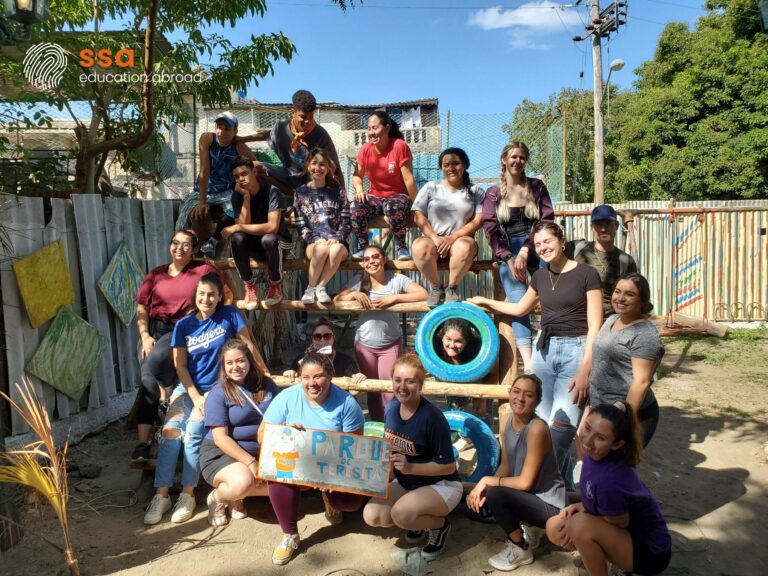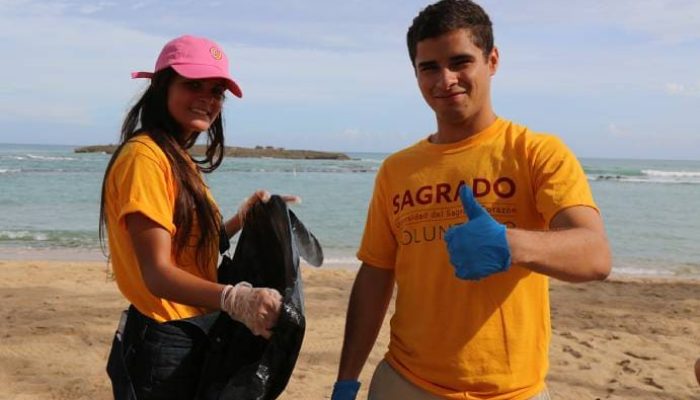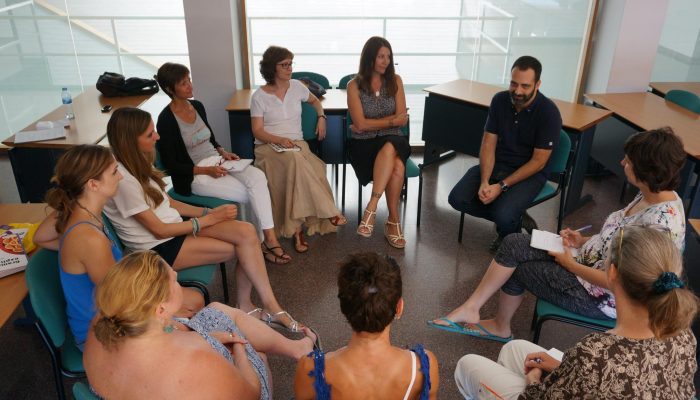Many students consider this question while they are in their first or second year of college. Studying abroad takes resources and the time to plan to fit it into your degree program(s). This article will explore the benefits of studying abroad and consider why it may not be for everyone.
Is studying abroad really good for students?
Former study abroad students tell how an education abroad program has impacted their lives. We’ll take a look at some of the benefits. Beyond what study abroad advisors and former students say about the impact of programs, research has been conducted that demonstrates the impact and value of studying abroad.
Develop skills that employers are looking for

The first key is to land that job. How can studying abroad help? 73% of human resource professionals cited study abroad experience as important when evaluating a candidate for a junior position. In addition, 8 of 10 human resource executives considered studying abroad as important in candidates for overseas positions.
Globalization has meant that employers seek more staff with intercultural competence. Studying abroad is a way to develop this competency, and graduates can use this background in their interviews to stand out.
Additional research from 2014 by Arizona State University demonstrated the following:
- 80% of US companies interviewed believed that their business would increase if they had more international expertise in their teams.
- Companies will place a greater emphasis on international competence over the decade that followed 2014.
- International skills are important for both entry-level and senior management positions.
- An appreciation for cross-cultural differences is the most important international skill companies seek.
The links are just a few examples of research that has been done in this area. Understand that having a study abroad program can help you stand out in the interview process and possibly open the door to begin your career.
What are the skills you can develop while studying abroad?

The most immediate skill for many students is proficiency in a language other than English. As providers of study abroad programs for more than 50 years, we can attest that our students see an improvement in their foreign language skills in an immersion environment since they are “forced” to use them. Walking the streets of Seville, you do not hear much English, and your daily life will involve transactions, conversations, and interactions, all in Spanish. With some digging, you can find research that reaffirms growth in foreign language proficiency during a study abroad program.
Other skills may be referred to as “soft,” but they are real nonetheless. Cross-cultural proficiency, however, may be hard to define. But your ability to live in, interact with, and problem-solve in another country can sharpen your skills. And you can have specific examples to use in job interviews about overcoming challenges.
Academic success!
We don’t just mean in your academic program. Overall, US students who participate in study abroad programs tend to have higher grade point averages.
It can benefit you in many ways – academic honors, attracting employers, or helping you gain admission to the post-graduate program that you seek.
Grow! Stretch yourself!

Personal growth comes from putting yourself in challenging situations. When we’re outside our comfort zone, we grow in ways that we initially don’t understand.
Studying abroad is a rich context for personal growth. You can find the resiliency and independence you didn’t realize you always had.
Finding out that you can overcome new types of challenges can benefit your social and family life, your professional life, and it can be a strong talking point in interviews.
Find new interests
A new environment can be stimulating. Maybe you discover you have a good eye for photography. Or learning about a new cuisine gets you interested in learning to cook. Paddleboarding in the Mediterranean with your fellow students?
There are possibilities out there for lifelong passions – and maybe a new career – that you may be missing. Studying abroad often helps you find these.
Friendships
Shared experiences create strong bonds. Our students often study with other American students from parts of the country where they’ve never been. Yet they’re able to form great new friendships bonding over fun weekend trips or swimming in the Mediterranean.
The current generation of students benefits from social media to maintain these friendships across borders and time zones. Studying abroad is a social experience. Most programs understand that a lot of the learning takes place outside of the classroom, so academics are balanced with cultural and social opportunities.
Travel and life experiences

Most of us want to see the world and experience cultures; we tend to be curious. There are exceptions, of course, but interesting experiences help shape us. And they give us great things to talk about at parties!
The reality is that once people finish their undergraduate studies, it can be difficult to find the time or have the resources to travel abroad, at least as much as we would like.
For many of us, the only time we can say that we have lived abroad is during our undergraduate years.
What are the disadvantages of studying abroad?
Study abroad program expense
The number one factor holding students back is the expense of a program. It’s a valid obstacle, and some families have to make tough decisions on a program for their children.
Nevertheless, unless your resources are extremely limited, do some research if you have a strong interest. There are sources of funding and scholarships that you may not have considered. Many universities apply financial aid packages to their study abroad programs, so the cost is similar to a semester on campus, plus transportation.
In addition, universities often have scholarship money to use just for studying abroad. So if your grades are strong, you might be able to study abroad with your school’s financial aid plus an additional scholarship.
US colleges and universities usually have an international education office with study abroad advisors. Very small colleges have a staff or faculty member who advises and supports study abroad students. We encourage you to schedule a meeting with an advisor at your school to learn about what they offer.
Another option is to consider a shorter program of study if a semester is not affordable. Most universities have short-term study trips – often called faculty-led programs – that may be as short as one week.
Graduating on time
The second reason that we hear is trouble fitting study abroad into a degree program to graduate on time. Again, consider this together with your academic advisor and the study abroad team at your school. Most schools have worked to find study abroad opportunities for almost every undergraduate study, including Engineering and Physical Sciences.
A big personal challenge
The final large category of reasons to miss out on studying abroad is more related to the type of person. You may be worried about new environments, culture shock, and being away from your family. These are all legitimate reasons to give you pause. Many students overcome them but seek input from their families and advisors.
So, is studying abroad worth it?
Hundreds of thousands of US students participate in study abroad programs each decade. They are often among the most memorable experiences of their undergraduate years or their lives.
We have outlined the numerous and significant benefits related to us by students and confirmed by research. So for most of them, yes, it is “worth it.”
Nevertheless, many do not experience this type of educational travel. You may not wish to take out loans – or have your family take them out – and studying abroad for some people could delay their graduation (which is also a high cost).
Consider your adaptability, your finances, and your mental health. And discuss your desire to study abroad with the appropriate people in your life, including professors, academic advisors, and study abroad staff.
Frequently asked questions
Can I study abroad for a year?
Yes, many students still do this. It is far less common than a semester or shorter-term program such as a summer term. It is more challenging to fit this into your study plans, but students in Humanities can do so. It may also work for students who have a lot of flexibility in their general education requirements. Many programs take students for an entire academic year.
Is studying abroad expensive?
Higher education, in general, is expensive for US students, so in general, you need to have access to financial resources.
Many students find that it is similar to what they pay on their home campus. An important factor is how your college or university allows financial aid to be applied to study abroad. That takes some investigation on your part.
There are ways to reduce the cost, such as shortening your ideal program and traveling to a place where living costs are not as high.
What are the first steps to studying abroad?
For an American student, the first steps are to decide your general idea of a destination and type of program. Then, it would help if you discussed it with your family, your academic advisor, and the study abroad department on your campus.
How long in advance should I plan my program?
We recommend at least one year, but ideally a year and a half. If, in your freshman year, you can start to narrow down your interest and learn how education abroad works at your campus, you set yourself up for a program late in your sophomore year or at any time during your junior year.






























